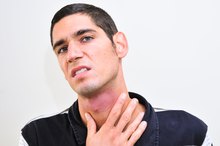What does fact checked mean?
At Healthfully, we strive to deliver objective content that is accurate and up-to-date. Our team periodically reviews articles in order to ensure content quality. The sources cited below consist of evidence from peer-reviewed journals, prominent medical organizations, academic associations, and government data.
The information contained on this site is for informational purposes only, and should not be used as a substitute for the advice of a professional health care provider. Please check with the appropriate physician regarding health questions and concerns. Although we strive to deliver accurate and up-to-date information, no guarantee to that effect is made.
How to Get Rid of Heat Rash Scars
Heat rash is an irritation of the skin caused by extreme sweating 1. It develops when sweat ducts are clogged and perspiration becomes trapped under the skin. Heat rash appears as tiny, itchy red blisters or bumps on the skin 1. More severe cases may appear as deep red lumps or welts. Heat rash generally affects clothed areas of the body, such as the back, neck, chest, armpits and abdomen 1. Heat rash usually goes away without treatment, but there are things you can do to speed up healing and get rid of heat rash scarring 1.
Get out of the sun to avoid excessive sweating. Keep cool and stay indoors as much as possible. Use sunscreen when outdoors to protect your skin. Wear loose, non-restrictive clothing made from cotton. Stay away from polyester, nylon and moisture-wicking clothes.
Home Remedies for Yeast Infections in Arm Pits
Learn More
Wash skin with a mild antibacterial soap. Use lukewarm water, to avoid aggravating the heat rash 1. Rinse and dry skin gently after cleansing, to prevent further scarring.
Apply hydrocortisone cream to affected areas. Hydrocortisone cream can reduce inflammation and scarring, soothe your skin, get rid of itchiness and promote faster healing.
How to Stop Acne Scarring
Learn More
Cool down your skin with ice cubes. Wrap ice cubes in a towel and apply to heat rash for 20 minutes, every three hours 1. Keep your skin cool, to tone down redness and prevent scarring.
Keep skin moist. Use a water based moisturizer to prevent your pores from clogging. Reapply moisturizer several times a day.
Tips
. Drink plenty of water. Water flushes out clogged pores and can help soothe the burning sensation caused by heat rash.
Expose affected skin to fresh air to promote faster healing.
Warnings
See a physician if your heat rash worsens or develops into open blisters.
Avoid scratching or picking at your skin to prevent scarring.
Related Articles
References
- Mayo Clinic: Heat Rash
- WebMD: Heat Rash - Topic Overview
- Das S. Prickly heat. Merck Manual Consumer Version. Updated February 2019.
- Guerra KC, Krishnamurthy K. Miliaria. In: StatPearls. Updated December 26, 2018.
- American Academy of Dermatology. 12 summer skin problems you can prevent.
- American Academy of Family Physicians. Heat rash. Updated June 27, 2017.
- Cleveland Clinic. Does your child have a heat rash? Cool it down—here's how. Updated May 26, 2016.
Tips
- .
- Drink plenty of water. Water flushes out clogged pores and can help soothe the burning sensation caused by heat rash.
- Expose affected skin to fresh air to promote faster healing.
Warnings
- See a physician if your heat rash worsens or develops into open blisters.
- Avoid scratching or picking at your skin to prevent scarring.
Writer Bio
Tanya Martinenko began her freelance writing career in 1996, with her first published article appearing in the "Winnipeg Free Press." Her work has appeared in various online Web sites, newsletters and other print publications. Tanya has earned a Bachelor of Arts in English from the University of Winnipeg.








